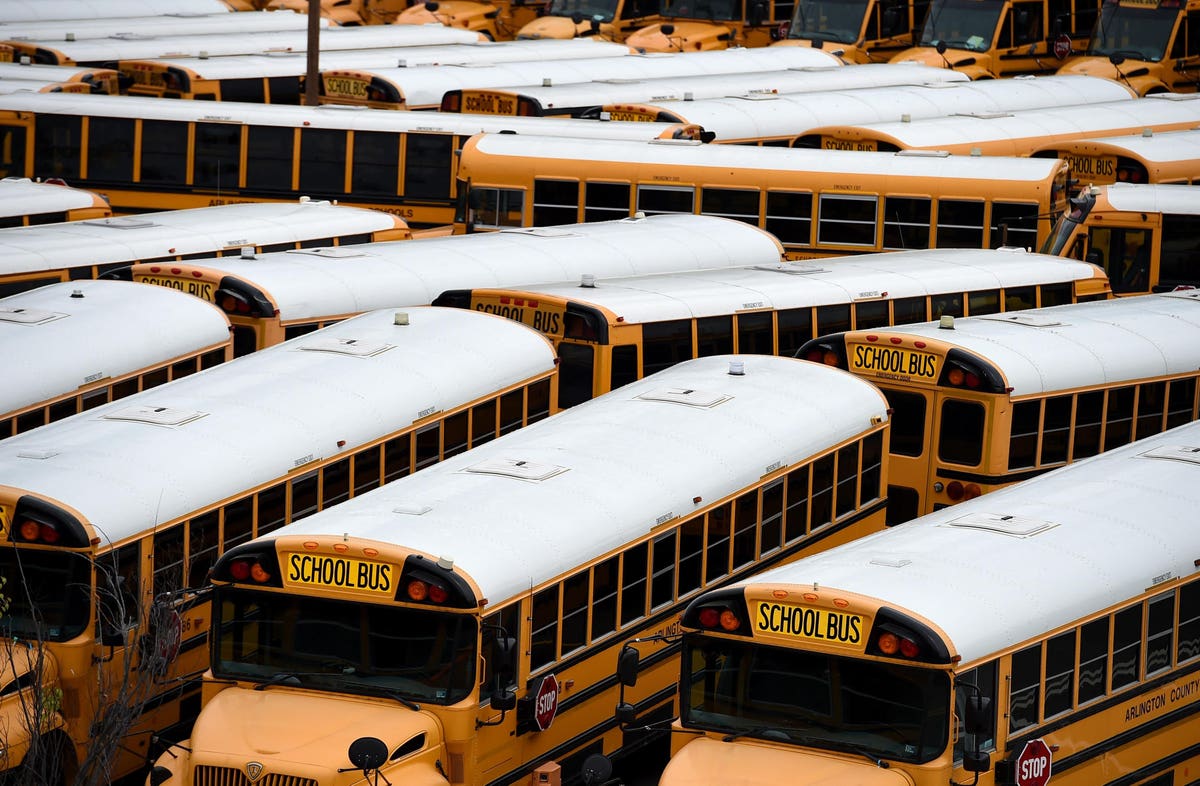Last week Louisville, Kentucky made national news with a school bussing disaster that resulted in stranded students and children arriving home, in some cases pee soaked and unfed and well after dark.
A variety of causes have been considered for the fiasco, including the computer program given the job of scheduling the bus routes for the Jefferson County Public School system. But according to many accounts, AlphaRoute was only involved because the district was trying to solve a larger underlying problem.
Last year, the district found it did not have enough bus drivers to cover the routes.
The issue is widespread. In Massachusetts, the Framingham school district just announced that of the 77 bus drivers it needs, it has 57. This year, some students will not get a free ride to school. In Arkansas, reports are that drivers are retiring faster than they’re being replaced. In Albemarle County, Virginia, frustrated parents are complaining that they have just days to figure out how their children will get to school and back. And it’s worth noting that all transit systems, not just school bus systems, have been feeling the personnel pinch.
Nor is the problem new. The National Association for Pupil Transportation (NAPT), the National Association of State Directors of Pupil Transportation Services (NASDPTS), and the National School Transportation Association (NSTA) conducted a survey in 2021, and found trouble.
“As school districts across the country return to in-person learning and COVID continues to have an impact on education in general and school transportation scheduling and logistics in particular, the shortage of school bus drivers has become conspicuous”, said NAPT Executive Director Mike Martin. “But let’s be clear – this is not a new problem. Nor it is easy to solve.”
That survey found that every region of the country was having trouble finding enough drivers. 51% of respondents described their situation as desperate.
In 2022 a follow-up survey found the situation had not significantly improved. And now 2023 is seeing more of the same.
Causes? Covid left many bus drivers looking for another job, and many didn’t come back. Many didn’t want to come back. The job has gotten tougher; the same uptick in behavioral issues reported in schools is also evident on school buses. The hours are odd, the pay unspectacular.
Solutions? Convince school staff to get a bus driver’s license. Raise pay. Provide support for dealing with difficult riders. None of these are new ideas, and none seem to be helping enough. And other solutions don’t apply. Many states and districts are filling teacher spots by simply lowering their job standards, but nobody really wants school buses driven by someone who doesn’t know what they’re doing.
Concerns about finding enough staff to drive the buses are everywhere—except in our national discourse about education.
Why is this critical issue not commanding widespread attention beyond the local communities directly affected? We continue to have national debates about which books to bar from school libraries, what history students may learn, and how to shield students from any exposure to information about LGBTQ persons. Policy makers invest time and energy on finding ways to push school choice. We’ve even seen federal proposals for teacher raises. Yet somehow, the fundamental question of how we’re going to get students to the school building attracts little attention.
Perhaps it’s that running buses is a nuts-and-bolts issue with little ideological baggage. There are no political positions staked out yet, no right wing or leftist arguments for basic transportation. Nor is there anything to interest non-parents. Lots of non-parents seem to have strong interest in what books are in school libraries, but whether or not the neighbor kids can actually get to the library doesn’t seem to activate anyone’s base quite so much.
Trouble finding bus drivers provides an exemplar of the contrast between the actual day-to-day functional operation of a school system and the sweeping philosophical underpinnings of education. Lots of folks are very interested in the latter and are both uninterested and an ignorant of the former. It’s mostly people who actually work in education who grapple with both.
Read the full article here





